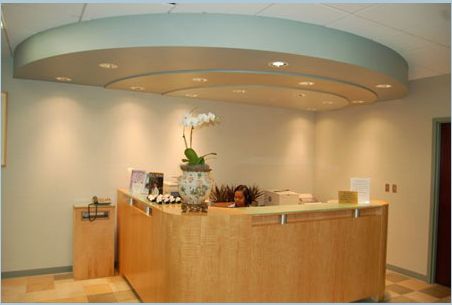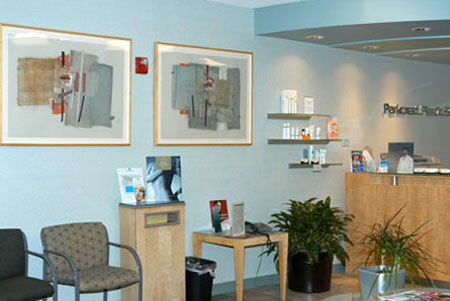Dr. David A. Caplin, Plastic Surgeon At Parkcrest Plastic Surgery in St. Louis, MO
/
 Parkcrest Plastic Surgery doctors: Dr. David Caplin second from left.David Caplin MD is one of four plastic surgeons at Parkcrest Plastic Surgery and draws patients from across all of Eastern Missouri.
Parkcrest Plastic Surgery doctors: Dr. David Caplin second from left.David Caplin MD is one of four plastic surgeons at Parkcrest Plastic Surgery and draws patients from across all of Eastern Missouri.
In this interview, Dr. Caplin shares his thoughts on training, technology, and even marketing a busy cosmetic practice.
Name: David A. Caplin, M.D., F.A.C.S.
Specialties: Cohesive Gel Implants, SmartLipo laser assisted liposuction
Location: St Louis, Missouri
Website: ParkcrestPlasticSurgery.com
That's interesting: Dr. Caplin is a recipient of the American Society for Aesthetic Plastic Surgery’s "Certificate of Advanced Education in Cosmetic Surgery" and been a principal clinical investigator for the Mentor CPG (gummy bear) Cohesive Gel implant since 2002 with one of the longest and largest clinical experiences with this procedure in North America.
(Cohesive Gel implants have been used with great success in Europe and many other countries for many years but are currently only available to surgeons who are investigators in this study. Cohesive Gel implants have unique qualities including their form-stabilized anatomic shape and their resistance to implant leakage. The distinguishing factor is that the implant is a "soft solid". If the Cohesive implant is cut in half the implant maintains its shape.)
What do you think is most important to train a well rounded plastic surgeon?
In order to be a good aesthetic surgeon I have always felt that a strong background in reconstructive surgery was a necessity. In my early career I performed primarily reconstructive surgery focusing on breast reconstruction, hand surgery, trauma surgery and repair of congenital deformities. My initial training in cosmetic surgery was during my residency years but the majority of the techniques I now use were learned “on the job” or in advanced training courses. Through the years I developed a passion for aesthetic surgery although I still have a strong interest in breast reconstruction. As I gradually increased the aesthetic portions of my practice I began to limit the reconstructive component. Over time I narrowed the focus of my aesthetic practice as well.
Can you tell us about Parkcrest Plastic Surgery, how it's and how it's organized?
Our private practice includes four board-certified plastic surgeons, an MD acupuncturist, two certified aestheticians, a certified nutritionist and two massage therapists specializing in lymphatic drainage. We have four registered nurses one of whom devotes her time exclusively to injecting Botox and fillers and there are numerous support staff employees. We offer a full compliment of aesthetic and reconstructive surgical procedures and employ numerous lasers in our practice. We operate primarily in a private surgery center with seven operating rooms and nine private overnight stay suites. We employ a full-time office manager with an accounting background and an administrative assistant.
Our group practices in suburban St. Louis County. My practice draws from a very large geographic area especially for facial cosmetic and breast augmentation procedures. All of our surgeons have very high volume practices although we differ quite a bit in terms of specific areas of clinical interest. Our staff is comprised of full-time employees and we have experienced minimal turnover in our key personnel over the past twenty years.
What are the key principles of compensation for your staff?
Our salary and benefits package is highly competitive and our staff does receive bonuses that are largely tied to the productivity of the corporation.
They are not commissioned.
One registered nurse is assigned to each of the physicians as well as one or more support staff for each physician. The aesthetic center has a high volume retail component and there is one administrative assistant solely dedicated to supporting the aestheticians. We have long recognized that a highly productive and competent staff actually represents a profit-center rather than a cost-center as they allow us to be so much more efficient and productive. My sense has always been that I would never lose a good employee to someone else who might be willing to pay him or her more than we do. I have had the same nurse for twenty years and the same administrative assistant for twenty-five years. Our staff is cross-trained so that they can cover any of our physicians’ practices as needed.
 How are you making decisions on new cosmetic technologies?
How are you making decisions on new cosmetic technologies?
We employ a number of cosmetic lasers in our practice. Our hair-removal lasers as well as our Alma Pixel C02 and AFT devices have been our workhorses. We use a fractionated CO2 laser and have for years employed the various generations of the Cynosure SmartLipo laser system in our practices.
Our technology purchases are usually set up as short-term leases arranged through our bank with a $1 buyout. In most cases we identify the devices in which we have an interest and seek out the representatives for that device.
We do occasionally find our way to new technology through sales calls. The skin lasers and hair lasers have always demonstrated a durable popularity but the Smart Lipo device has been an absolutely outstanding addition to our practices. Used almost exclusively in our office it nicely compliments the Vaser and PAL technology that we employee in our surgery-center based liposuction cases.
What marketing strategies have you found to be effective?
We do have an Internet presence but do little print advertising. Our aesthetic center does periodic email blasts to their client base to announce new products or technology that we are introducing or special offers for retail products and services. Most of our patients come to us by referral from other patients and from physicians.
Because I have been involved in numerous FDA device trials I also attract patients who are specifically interested in the device or procedure I am testing. An example would be the Mentor MemoryShape (“gummy bear”) breast implant. As one of the principle investigators for this implant many patients are attracted to my practice because of their interest in this device. If you are willing to invest the time involved in device clinical trials you will benefit on many levels including drawing earned-media attention to your practice. We have done some very successful advertising using a question-and-answer format. We pick a topic or procedure, define the most commonly asked questions and answer them concisely. This has been very effective when marketing the Smart Lipo technology. I have been part of an ongoing IRB approved study using the Smart Lipo device to treat axillary sweating (hyperhidrosis). Our ads for this study have been very productive and generate large numbers of potential patients.
I have always been very involved in medical charity work. For the last six years this has centered on the Gateway To Hope breast cancer program that I co-founded. In caring for those in need the community comes to recognize you not only for your surgical skills but also for your humanitarian efforts. Advertising tells people a little about you but charitable efforts tell people a lot more about you
What are the top aesthetic treatments in your practice?
From a surgical standpoint facelifts, blepharoplasties, breast augmentations and/or mastopexies , abdominoplasties and liposuction are the most popular and profitable procedures. Smart Lipo procedures have been intensely popular for many years. I have a very large “injectable’ component to my practice primarily utilizing Botox, Dysport and fillers delivered in concert with a highly skilled and trained nurse-injector.
Our Aesthetic Center has a large retail presence and specializes in laser treatments and skin care related products and services.
 Have you developed anything that you would consider to be a formula for success in managing your clinic?
Have you developed anything that you would consider to be a formula for success in managing your clinic?
Cosmetic patients expect, and deserve, a high level of service. As a plastic surgeon it is critical to hone your patient selection skills and set practice guidelines that you always utilize. Nothing is more important than patient selection if you want great outcomes and happy patients. Your patients have to be as committed as your are to doing everything possible to assure an excellent surgical outcome.
I had a patient come to my office last year who really wanted a facelift before her upcoming wedding. I told her that I would not perform her surgery unless her wedding was scheduled at least 12 weeks after the surgery to make sure she looked her best in photos and on the day of the event. Unfortunately we had no slots on our schedule that would have given her enough time to recover so she decided to cancel her wedding and reschedule it once we had found a surgical date for her. The surgery went well and she actually looked great three weeks after the surgery. Obviously you may lose some patients by “sticking to your guns” but, in the long run, you will save yourself, and your patients, a lot of stress and aggravation.
What advice can you give to other doctors?
I find that aesthetic surgery is actually more labor intensive and stressful than reconstructive surgery. Patient expectations are very high (as they should be) and there is absolutely no margin of error that is acceptable. Pick the procedures that you do best and limit your practice to those procedures. Don’t try to be the best at everything and always feel comfortable referring patients to your competitors or colleagues if they are better qualified to perform a specific surgery. Don’t be afraid to introduce new techniques and devices into your practice but always use critical analysis before doing so. Communicate openly and often with your patients and always be their strongest advocate.
About: Dr. Caplin graduated from the University of Cincinnati College of Medicine and then trained in General Surgery and Plastic Surgery at Barnes-Jewish Hospital at Washington University St. Louis. He has a teaching appointment at Washington University and has helped train the Plastic Surgery residents for many years. Along with a busy private practice he has been involved in numerous medical businesses (with a special interest in ambulatory surgery centers) and has participated in many clinical trials and surgical device training programs.
This interview is part of a series of interviews of physicians running medical spas, laser clinics and cosmetic surgery centers. If you'd like to be interviewed, just contact us.





